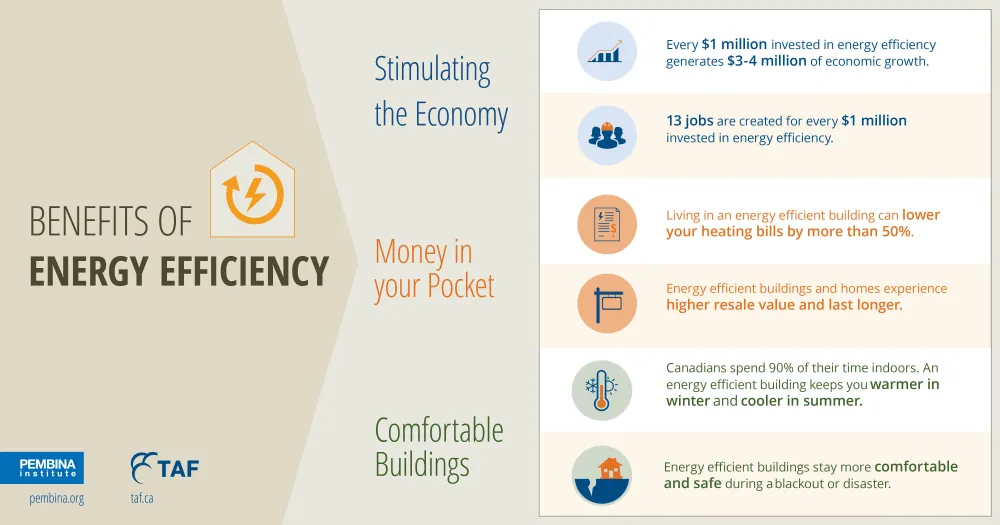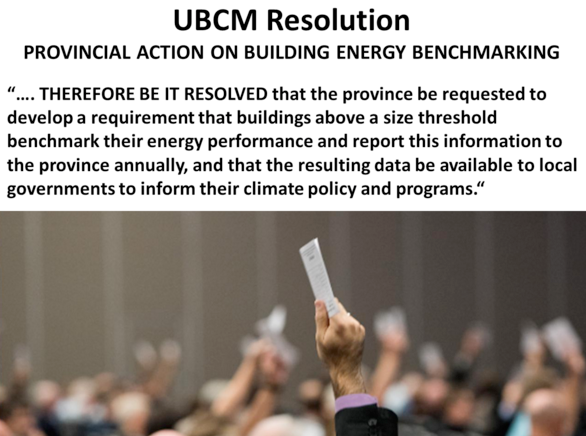Local governments and property owners all across British Columbia want large buildings to be required to track their energy and water consumption, and to report this data to the province every year. This practice, known as building energy benchmarking, is a key tool for driving conservation and efficiency, and reducing carbon pollution.
In order for energy and water use to be effectively managed, it must first be measured and understood. Benchmarking allows property owners to compare the performance of their buildings with historical use and similar buildings.
This, in turn, helps building owners identify opportunities to save energy and water, and thereby save money on utility bills and curb pollution. Studies by the U.S. Environmental Protection Agency, Urban Land Institute, and Massachusetts Institute of Technology suggest that benchmarked buildings can achieve energy savings of 7% to 14% within four years — even before any major investments in deep retrofits.
Reducing energy and water waste can save British Columbians millions of dollars every year. Promoting high levels of building performance will also improve the quality and health of the spaces in which British Columbians live and work, create jobs in the clean economy, and support innovation in the local supply chain.
The Lower Mainland Local Government Association recently passed a resolution calling on the B.C. government to make energy benchmarking and annual reporting mandatory for large buildings, and to make energy data available to local governments to inform their regulations and climate-change programs. In September, the Union of B.C. Municipalities will vote on a similar resolution at its annual convention in Vancouver.
B.C. has already committed to taking action on tracking building energy use through the Pan-Canadian Framework on Clean Growth and Climate Change, and Pacific Coast Climate Leadership Action Plan. Adopting a benchmarking requirement would build on progress made to date and accelerate the market transformation towards low-carbon, ultra-efficient buildings already underway in the province.
This low-cost, market-based approach is already being used in 25 North American cities; Ontario, Washington, and California; and numerous jurisdictions in Europe and Asia. We call on the province to follow suit — taking a step forward on climate leadership while saving money for British Columbians.
Canadians spend 90% of their lives indoors, which underscores the importance of tapping into the multiple benefits of efficient homes and buildings. Every $1 million invested in energy efficiency generates 13 jobs and $3-4 million in economic growth. Energy-efficient buildings last longer and can fetch higher resale values. They can keep you warmer in winter and cooler in summer, and more comfortable and safe during a blackout or disaster.
Clearly, taking action on building energy benchmarking is a win-win for British Columbians.
Dylan Heerema is an analyst with the Buildings and Urban Solutions Program at the Pembina Institute, Canada’s leading clean energy think-tank.
Akua Schatz is director of advocacy and development at the Canada Green Building Council.
This op-ed originally appeared on page G2 of the Vancouver Sun on September 2, 2017.









